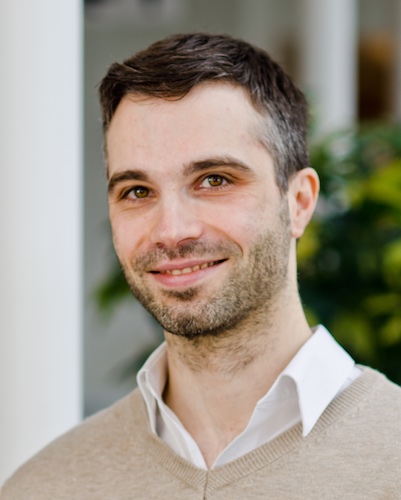| Thu. July 17, 2025 | |

|
|
|
It is an understatement to say that the Israeli-Palestinian dispute is multi-faceted. It is also very emotionally loaded. Unfortunately multi-faceted and emotionally loaded do not naturally go well together. This becomes painfully clear when what happens is the worst for a human being, namely when fellow human lives are lost, as in the recent wave of violence in Israel and the territories under its control. While the region in question has been prone to violence for severaldecades, every new casualty means a shock for a large number of people. It is a deplorable characteristic of a deeply entrenched and violent conflict that certain deaths are viewed as tragedies by one group but as something just or justifiable by another group. In only certain rare cases, opponents would agree on the heartbreaking character of the loss of a given human life. For someone who follows developments in Israel, news reports about the nth terror attack inevitably hit like a ton of bricks. One does not think about anything else; only about the personal safety of oneself and others. One hopes that the number of victims remains as low as possible and, unrealistically, that such attacks will not happen again. In these moments, emotions are so overwhelming that it is not easy to find space for other thoughts or considerations. This is part of the reality. There is another part of the reality. A few hours after the Tel Aviv attack on April 7, 2022, some US-based organizations issued statements that, next to condemning the horrific violence, also pointed to the fact that it did not take place in a “vacuum”. One statement referred to Palestinians killed or injured in the context of the conflict, while another mentioned the Two-State solution outright. It is not a coincidence that it seems easier for groups outside Israel to see different angles and, in any case, their messages refer to situations that are also out there, irrespective of one’s personal opinions about them. From an entirely external point of view, indiscriminate of nationality, ethnicity or religion, the only conclusion in the face of the violence can be one of loss of human lives. It is simple and sad. However, when one raises questions about responsibility, or tries to introduce perspectives, the simplicity immediately disappears, whereas the sadness remains. Israeli casualties in recent rounds of violence have been the victims of deliberate murder attacks. This is not the case of most Palestinian casualties, who lost their lives either in an (attempted) attack or during military operations conducted in response to attacks. Whatever the judgment on these Palestinians’ implication in acts of terror, their deaths also have a profound impact on the larger Palestinian society. As the people in question are (alleged) perpetrators of crimes against Israelis, Israeli media and public discourse typically do not pay much attention to their death, nor to the effect the latter has on the other side. In the case of a terror attack against Israelis, a special news broadcast spans the entire evening, whereas the information that the ensuing military operation kills three Palestinians is brought as a side-fact about 30 minutes into the next day’s news show. Of course, there is also a whole set of political, economic and social issues that Palestinian and Arab Israeli citizens face on a daily basis, and of which most Jewish Israelis are not or only very partially aware. Mainstream Israeli media provide very little coverage of Palestinian affairs, apart from matters related to security or, lately, Palestinian reactions to Israel’s developing ties with other Arab countries. This is a quite remarkable state of affairs for territories that are so geographically proximate and, in spite of all, closely intertwined. All of this is, unfortunately, part of the big picture, and current discourse and narratives do not make it easy for people to see it. This is even more so through times of outrage and grief, which, ironically enough, yield similar reactions on both sides. The day after the recent Tel Aviv attack, an Israeli songwriter stated on Israeli radio that peace is the best security. However, before peace even becomes a remote possibility, it would be good if awareness and discourse could change, even in the context of tragic events. Dr. Alexander Loengarov is a visiting fellow at the international and European law program at Vrije Universiteit Brussel (Brussels, Belgium) and a former official of the European Economic and Social Committee of the European Union. At Vrije Universiteit Brussel, he coordinated the first rounds of the EU’s Erasmus Mundus External Cooperation Window scheme for academic mobility with Israeli and Palestinian institutions. He has published analysis for think tanks like the Washington Institute for Near East Policy and Israel Policy Forum, in addition to opinion pieces on Middle East and Israeli politics written for the Brussels Times. His writings reflect solely his own views, and not those of the European Economic and Social Committee or the European Union, which cannot be held responsible for any use made of it.
|
|
| Contact Us | About Us | Donate | Terms & Conditions |
|
All Rights Reserved. Copyright 2002 - 2025

